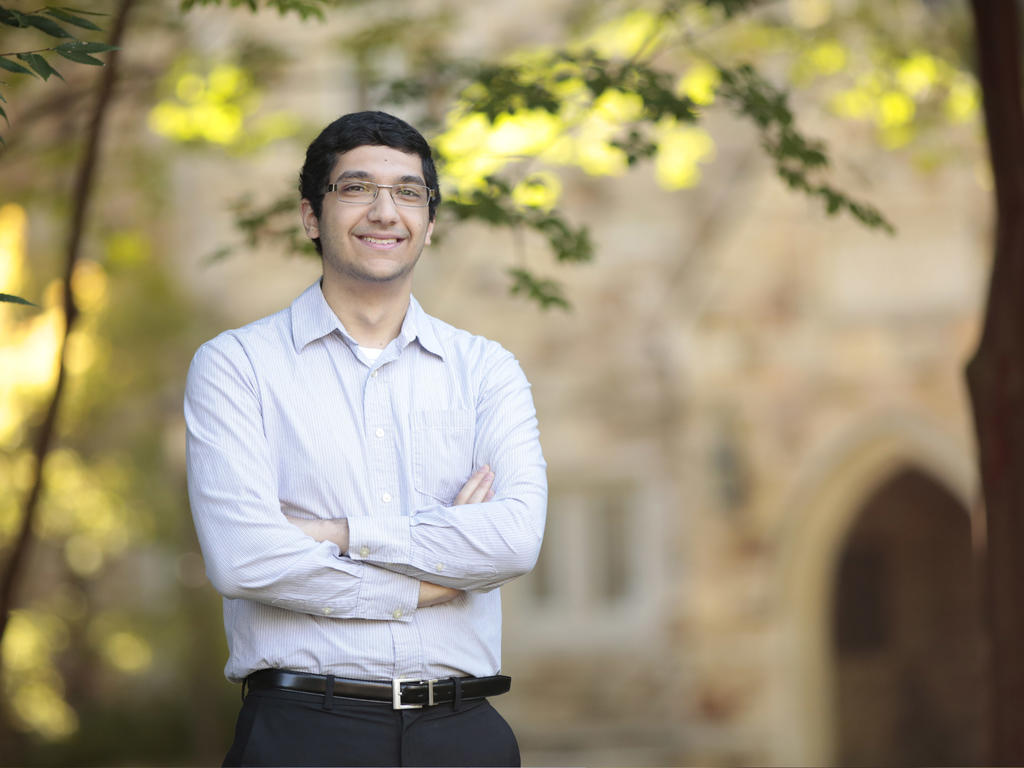Hometown: Nashville, TN
Major: International Studies, Political Science
Minor: Education
Extracurriculars: Student Director for Kinney Community Service Program, Bonner Scholar, African Student Association, Rhodes College Democrats, Omicron Delta Kappa Honor Society, Sigma Iota Rho International Studies Honor Society, Pi Sigma Alpha Political Science Honor Society
When Tony Hanna ’16 began searching for his ideal college, finding a school that valued community service was one of his highest priorities. He soon discovered Rhodes, and, when he was offered a place in the Bonner Scholars Program, an innovative program for scholarship and community service, his decision was made.
Since then, the Nashville native has taken full advantage of the many service opportunities Rhodes offers. During his sophomore and junior years, Tony worked as a Kinney coordinator for the Mentoring and Education department. As such, he connected students with schools needing volunteers and led issues-based team meetings to better inform students on education issues troubling the Memphis community. This year, Tony is one of only three student directors for the Kinney Community Service Program. The student directors work with the 12 Kinney issue-based departments to organize their events and plan bigger events for all of Memphis. “I think that the Kinney Community Service Program has been the determining factor in my passion for social service, because it has given me the chance to connect to the Memphis community in a way that I would have never imagined,” says Tony. “It has made me feel like more a part of Memphis than of my hometown of Nashville.”
Before arriving at Rhodes, Tony worked at a refugee center in Nashville, coaching adults and helping them obtain citizenship. In Memphis, Tony continued working with refugees by volunteering for the Refugee Empowerment Program (REP). Focusing more on education, he pioneered an ACT prep program for high school students through REP. Although the first year of the program did well, Tony knew that better communication with the participants was needed. Over the summer he developed his own curriculum for tutoring non-native English speakers, a 150-page guide of specific test-taking tips. The students were very receptive to the program; some applied to and were accepted at Rhodes. In addition, he planned a college visit road trip for the students to, as he says, “get them passionate about going to college and not being complacent with their position in life.”
Being passionate about college and higher education rings true in Tony’s own life. For him, one of the best things about attending a smaller liberal arts college has been the relationships he has been able to form with professors. “I really like that my professors have facilitated my passion for different areas of study,” Tony explains. One such professor is Esen Kirdis, assistant professor of international studies, who offered Tony a unique research opportunity. As a fluent Arabic speaker, he translated pamphlets and websites for political parties in Morocco and Tunisia, and analyzed the rhetoric searching for similar themes. Once a week he would report to Professor Kirdis what he’d observed regarding these political ideologies, supplementing her work on the political models of Egypt and Turkey.
Inspired by his work with Professor Kirdis, Tony spent the summer after his sophomore year doing independent study in Durban, South Africa. There he observed the issues South Africa faces, particularly related to education. De facto segregation surprised him the most, but his experience inspired Tony to act. Toward this goal, this fall he will be attending the Harvard Graduate School of Education to study international education policy. “Segregation is segregation everywhere. It was troubling. That’s one of the things I want to address when I’m working in international education policy in the future. The most impactful thing about my four years at Rhodes is that I was given the opportunity to be a leader. It gave me the confidence to know that I can go forward, go to grad school, and be a leader in politics or on global policy matters.”
By Swaneet Mand ’18
